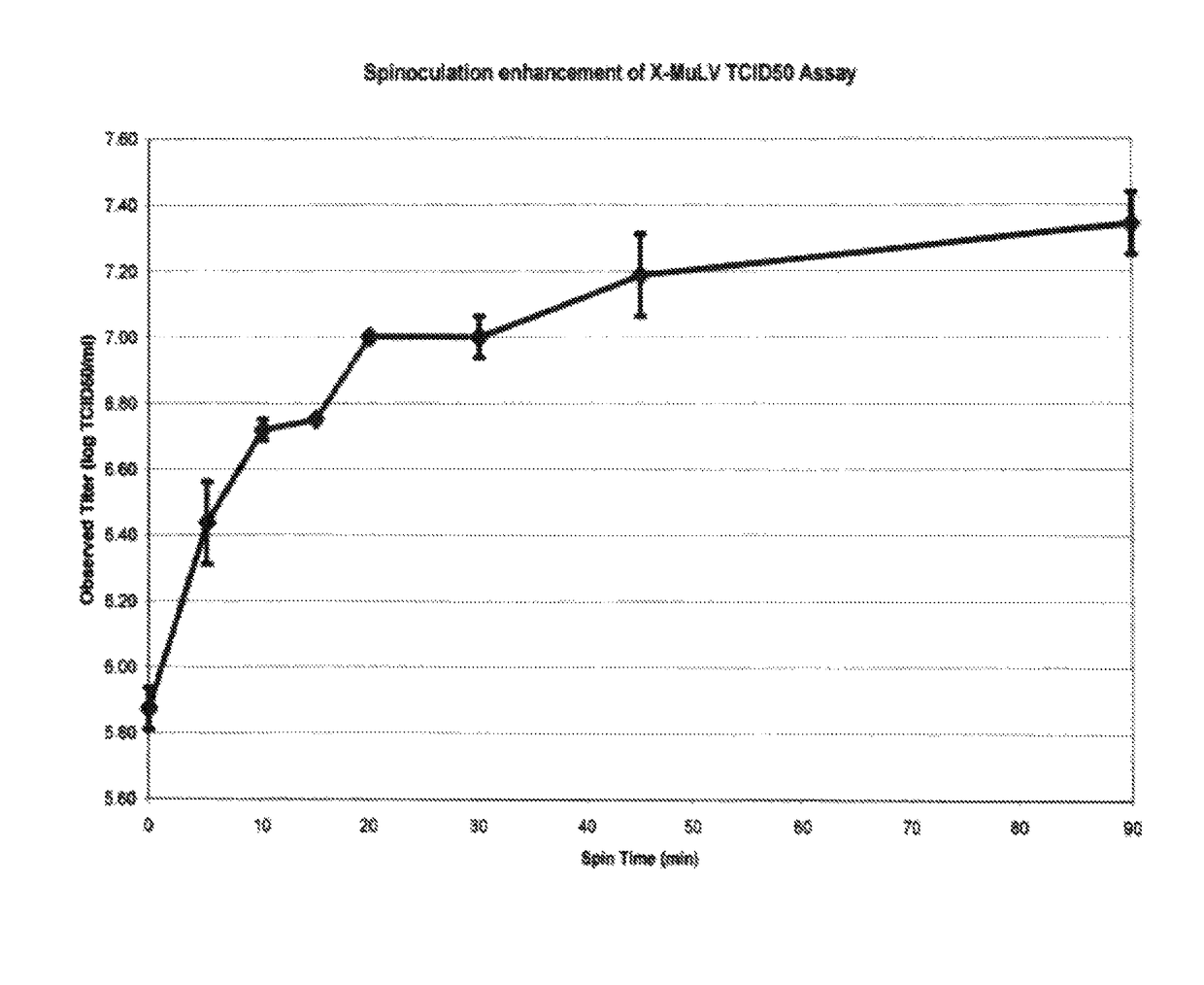Use of centrifugation-aided infection to increase virus titer
a technology of centrifugation and infection, which is applied in the field of increasing the sensitivity of virus titer assay, can solve the problems of inability to detect infectious viruses in spiked feed, inability to carry infectious viruses into the manufacturing process of biopharmaceutical products, and inability to achieve maximum virus titer obtainable in spiked feed, so as to improve the detection of titrated viruses and increase the calculated log reduction
- Summary
- Abstract
- Description
- Claims
- Application Information
AI Technical Summary
Benefits of technology
Problems solved by technology
Method used
Image
Examples
example 1
[0049]Test materials used:[0050]A) Xenotropic murine leukemia virus (X-MuLV)[0051]1) Strain: ATCC VR-1447[0052]2) Prep type: VSP X-MuLV Mk1 purified[0053]3) Lot # CP2; Production date: November 2009[0054]4) Recorded titer: 5.94 log TCID50 / ml[0055]B) Minute virus of mice (MVM)[0056]1) Strain: ATCC VR-1346[0057]2) Prep type: VSP MVM Mk2.1[0058]3) Recorded titer 10.4 log TCID50 / ml[0059]C) Plate preparation[0060]1) The day prior to the experiment, 96-well plates were seeded with PG-4 cells (labeled #1 to #16) by standard protocol (each well containing 100 μl media with 5.0 μg polybrene / ml (final concentration will be 2.54μg / ml after inoculation).[0061]2) Also, 96-well plates were seeded with 324K cells (labeled #17 to #20) by standard protocol.[0062]D) Virus stock dilution[0063]1) A single ten-fold dilution series was made of the X-MuLV stock virus in 50 ml tubes (10−2 through 10−8).[0064](a) Label seven (7) tubes #2 through #8.[0065](b) The following media was used for the dilutions:[0...
PUM
| Property | Measurement | Unit |
|---|---|---|
| temperature | aaaaa | aaaaa |
| temperature | aaaaa | aaaaa |
| temperature | aaaaa | aaaaa |
Abstract
Description
Claims
Application Information
 Login to View More
Login to View More - R&D
- Intellectual Property
- Life Sciences
- Materials
- Tech Scout
- Unparalleled Data Quality
- Higher Quality Content
- 60% Fewer Hallucinations
Browse by: Latest US Patents, China's latest patents, Technical Efficacy Thesaurus, Application Domain, Technology Topic, Popular Technical Reports.
© 2025 PatSnap. All rights reserved.Legal|Privacy policy|Modern Slavery Act Transparency Statement|Sitemap|About US| Contact US: help@patsnap.com

